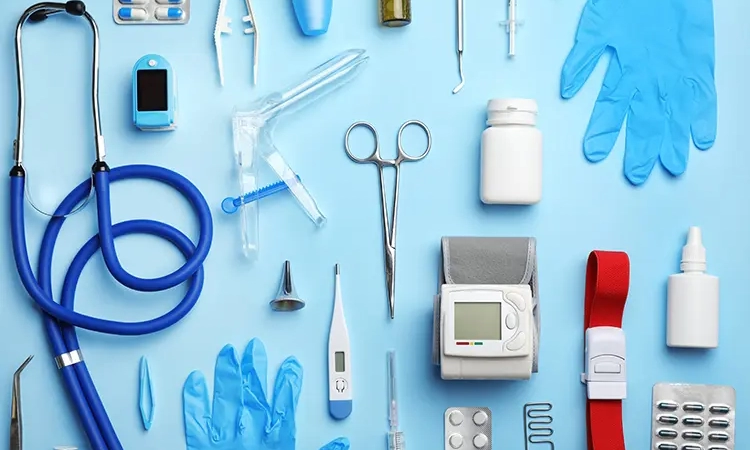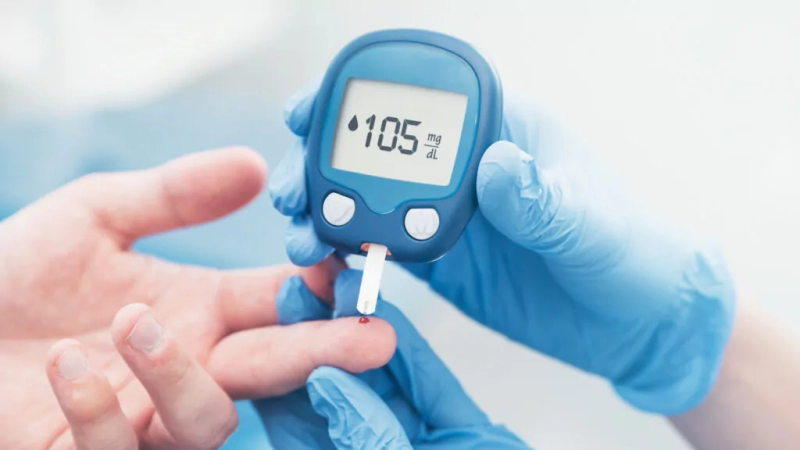The 200 acre exclusive park will spur domestic production of medical devices, help reduce import dependency in this sector while creating employment and growth in the state.
India primarily depends on imports for the medical device sector. Over 85% of medical devices are imported into the country causing a high import bill. Medical devices imported into the country include stents, catheters, sealants, dental implants, orthopaedic implants, spinal implants, syringes etc. To encourage local companies to manufacture in India, the Chief Minister of Andra Pradesh, Mr. Chandrababu Naidu has announced the development of a 200 acre industrial area for the manufacture of medical devices.
The aim of this medical device park would be to encourage translation of home grown research into commercially viable projects, reduce the import bills the country currently faces in this sector and bring down the costs of healthcare delivery in India. Additionally, the products manufacturerd in this hub, would have to obtain regulatory clearances from the Central Drugs Standard Control Organization (CDSCO) and manufacturing licenses from the local Andhra Pradesh government. The Park will be having a Common Manufacturing Facility Centre to act as a Hub for SME Sector to enable it to flourish as a Cluster. Focus will be on creating an Eco System for High End Medical Device Manufacturing and Import Substitution with an eye for Export Market. If you are interested in learning more about Manufacturing License in India, visit ‘How to get Manufacturing License in India?’.
Central government officials apprised the meeting that the government was working at the highest level to address the issue of inverted duty structure which is stunting growth of this industry and provide preferential market access to boost domestic manufacturing. It was also informed that a new Draft Policy on Medical Device sector was also being worked upon and shortly a National Policy on Medical Device will be released.
“This will be a wonderful opportunity for the state to increase its industrial footprint, create employment while giving a big boost to import substitution for the country. We are truly excited with the decision,” added Mr Nath.
Other News
India Medical Device Pricing Strategy: Ensuring Growth & Affordability
India’s National Pharmaceutical Pricing Authority (NPPA) is developing a specialized India medical device pricing strategy for medical devices, transitioning away from the conventional drug-centric framework. This innovative strategy will incorporate international pricing tactics tailored to […]
Read MoreImports of High-Value Medical Equipment
High-Value Medical Equipment The Central Drugs Standard Control Organization (CDSCO) and the Central Board of Indirect Taxes & Customs have released a new circular, “F.No.401/40/2021-Cus.III,” detailing updated policies on the import of used high-end medical […]
Read MoreSEC Committee: Pioneering Medical Approvals
New important article released by Central Drugs Standard Control Organization (CDSCO) titled “SEC – Special Expert Committee, Medical Devices”. Key highlights include the streamlined processes for CDSCO application evaluations, preparation and significance of briefing materials, […]
Read MoreErlySign Oral Cancer Detection Technology Gets CDSCO Nod
ErlySign, a Nagpur-based biotech startup, has received approval from the Central Drugs Standard Control Organization (CDSCO) to conduct large-scale clinical trials for its novel oral cancer detection technology. The approval for ErlySign follows a rigorous […]
Read MoreAdditional Steps Announced by FDA to Modernize Clinical Trials
The U.S. Food and Drug Administration has made draft guidance available with updated recommendations for good clinical practices (GCPs), which are intended to modernize the clinical trial design and conduct while maintaining data integrity and […]
Read MoreAccreditation and Registration Numbers for Foreign Manufacturers Publication by PMDA
This article deals In accordance with the Pharmaceuticals and Medical Devices Act (PMD Act) of Japan, foreign businesses that wish to produce pharmaceuticals, quackery products, active pharmaceutical ingredients (APIs), or medical devices abroad and import […]
Read MoreBSI New Certification to Mitigate Antimicrobial Resistance Risk in Antibiotic Manufacturing
BSI, the business improvement and standards company, has developed a new certification to mitigate the risk of antimicrobial resistance (AMR) in antibiotic manufacturing. The certification, called the Minimized Risk of Antimicrobial Resistance (AMR) certification, will […]
Read MoreTUV SUD Inspects IVD Medical Devices’ Cyber Security
The growing digital connectivity of medical infrastructure is resulting in complicated systems with a plethora of diverse interfaces that are potentially vulnerable to assault. The IVD requires producers to provide proof of cyber security before […]
Read More


